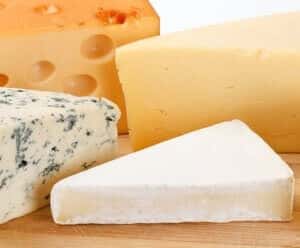
Migraines are a pain. Even worse than the pain, though, is the life disruption. Some sufferers lose days every time a headache strikes hiding in a dark quiet room. They may feel horribly nauseated or completely enervated. Most would welcome a way to prevent migraines. Some people find that avoiding certain foods can help. That could be a direct effect, or it could be indirect. If changing your diet means you are less likely to need heartburn medicine, that too makes a difference.
Acid-Suppressing Drugs Associated with Greater Chance of Migraine:
Acid-suppressing medicines such as esomeprazole (Nexium) and omeprazole (Prilosec) help treat heartburn, gastroesophageal reflux disease and other digestive disorders. An analysis of data from almost 12,000 individuals found that people taking such medications are more likely to suffer migraine headache. Those on PPIs like omeprazole are 70% more likely to have a diagnosis of migraine than people not taking such medicines (Neurology Clinical Practice, April 24, 2024).
This research does not show that the proton pump inhibitors (PPIs) actually cause headaches. However, the findings suggest that people who wish to prevent migraines should stay away from foods that would prompt them to take such medicines.
Can Avoiding Certain Foods Prevent Migraines?
Q. My husband used to get migraines. He was suffering so much, I decided to see if it was related to food.
For a two-month period, I wrote down what he ate every day. We discovered that within three days before each migraine, he had eaten Chinese food, salted peanuts, sharp cheese or a frozen lasagne. We switched to fewer frozen entrees, moderated consumption of cheese and peanuts and asked for no MSG in our Chinese food.
As a result, his migraines went from once a month to about two a year.
Migraine Headache Food Triggers:
A. Headache specialists consider food triggers for migraine to be controversial (Martin & Vij, Headache, Oct. 2016). That’s because there are relatively few well-controlled scientific studies of dietary triggers.
That said, there is general recognition that some people may be susceptible to certain foods. Among the most common culprits blamed are alcohol, chocolate, aged cheese, monosodium glutamate (MSG), nuts, salami, nitrite preservatives and artificial sweeteners such as aspartame. A food diary of the sort you kept is a very good way to uncover migraine triggers for a given individual.
In fact, a study in children found that many of those who avoided frequent triggers such as aspartame, caffeine, MSG, cocoa, cheese, citrus and nitrites had fewer headaches (Taheri, Nutrition and Health, March 2017). This particular study showed that eliminating the most frequently consumed suspects made the headaches go away.
Learn More:
You can learn more about food triggers, a connection between celiac disease and migraine headaches and nondrug approaches that can help prevent migraines in our Guide to Headaches and Migraines. You may also wish to listen to our interview with Dr. Kulreet Chaudhary, Show 1033. In it, she describes how she turned to Ayurvedic medicine when conventional medications did not help her own migraines.
If you have had success reducing your migraine headache frequency by altering your diet, please tell us about it in the comment section. We are always interested.
Citations
- Slavin M et al, "Use of acid-suppression therapy and odds of migraine and severe headache in the National Health and Nutrition Examination Survey." Neurology Clinical Practice, June 2024. https://doi.org/10.1212/CPJ.0000000000200302

